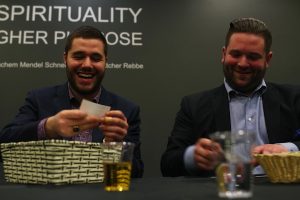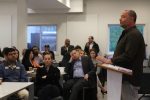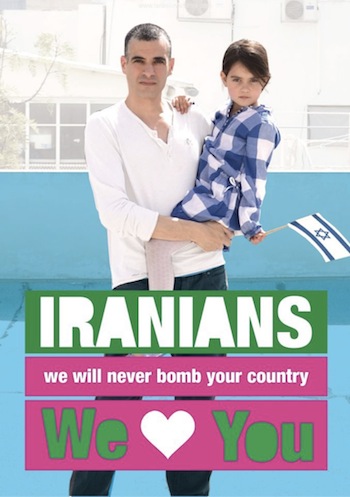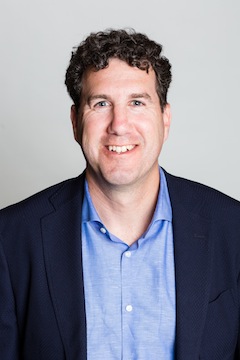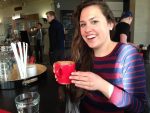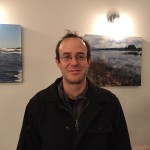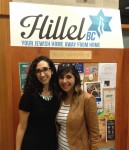Call It Democracy speakers, from left to right, Mira Oreck, Margot Young and Sharon Abraham-Weiss. (photo by Zach Sagorin)
“From the Holocaust, there is a lesson we can all agree about: ‘Never again.’ There are two paths: never again to us or never again to anybody,” said Sharon Abraham-Weiss, executive director of the Association for Civil Rights in Israel.
Abraham-Weiss was speaking at the event Call it Democracy, held at Temple Sholom on March 14. She was joined by Mira Oreck, director of public engagement at the Broadbent Institute, and Margot Young, a University of British Columbia law professor, who served as facilitator.
About Israel, Abraham-Weiss said, “The Declaration of Independence from 1948 is the establishment for this democracy, promising equality for all its citizens. When I’m saying citizens, 20% of the citizens of Israel are Palestinian-Israelis, Arab-Israelis, people that were in Israel in 1948. Speaking about the occupied territories, it’s a different story.”
She said, in contrast to Canada, Israel “does not have a constitution … so, our toolkit, as lawyers, [is] the Basic Laws that we consider higher laws.” Additionally, she said, “We don’t have any separation between state and religion and this is something very important to understand.” For example, “the only way to get married … is in the Orthodox rabbinical system for Jews or other religious systems for non-Jews.”
Moreover, she continued, “In 1967, we occupied areas known today as ‘the occupied territories,’ Judea and Samaria, Palestine, you can name it. There are about two million people there, Palestinians. When I speak about democracy, it does not apply to the occupied territories. It’s different [there] because these people do not have the status of citizens, they are refugees.”
Oreck thanked the Coast Salish peoples, “whose territory we are gathered on tonight,” when she began her remarks. “I think it’s a relevant acknowledgement to the conversation around civil liberties, civil rights and human rights.”
Oreck described the notion of civil liberties as a political one. “These are political decisions that are made from country to country and we often think of civil liberties in a fairly narrow sense. What are the personal guarantees and freedoms that the government cannot infringe on by law?” she asked, listing freedom of conscience, religion, press, the right to security. “We don’t necessarily think about poverty and housing and other rights that we may think of more generally as human rights that don’t fall into our more narrow definition of civil liberties,” she said.
Young shifted the conversation to the balance between security and liberty.
“Can security reasons be justified by everything we are doing? Abraham-Weiss asked. “The answer from my perspective is no, not at all, it has to be balanced. Can we completely dismiss the idea of security reasons? And the answer is no.” She spoke about profiling at airports as an example. “It’s hard, for on one hand, we don’t want any terror attacks; on the other hand, 20% of our population belongs to the Arab minority. Can we generalize … that they are all suspects?” She said, “How do you bring your citizens to be part of the society when you always blame them? How do you bring your citizens to be part of the society when their schools, per capita, are less than the schools I am going to in west Jerusalem and other places?
“In 2010, the government of Israel joined the [Organization for Economic Cooperation and Development] and the OECD said that, if you want to be a member of the developed countries, you must show us better numbers of Arabs in the job market and better participation of ultra-Orthodox in the job market. [With] this incentive, we showed better numbers … and this, in a way, is balancing the security risks.”
In the Canadian context, Oreck referred to the passing of anti-terrorism Bill C-51, noting that the NDP was the only party that voted against it. “There are real conversations around how we address very real security threats and what the tension is,” she said. “But, also, what are we willing to trade away?… Frankly, who would be in violation of that security based on C-51?… Would people that are protesting pipelines, for example, be a threat to national security? And, if so, who are those people? Who is being threatened? Who is being protected?”
Another prominent Canadian security discussion has been about the Syrian refugees, said Oreck. “When the new government talked about bringing in Syrian refugees, well, what is the threat?… There are still many questions around what the screening process was, should men be able to come in, or should families be prioritized?”
In Canada, there is the Charter of Rights and Freedoms, Young noted in changing the topic from security to equality. “We do have a lot of these questions being decided by our Supreme Court of Canada in an authoritative way,” she said.
In Israel, explained Abraham-Weiss, “Our main tool is the Basic Law of Human Dignity [and Liberty] and, when we take things to the Supreme Court … although it is about freedoms, the word that is not [there] is the word equality and the reason equality is not there, it is because … the Orthodox were against the word equality because of women’s rights.”
She explained how equality was written “into dignity” in the 1990s. “Humiliation and discrimination harms your dignity and that is how it was justified. It is a very famous case,” she said, referring to that of Alice Miller, who wanted to be a pilot in the Israel Defence Forces. “She was rejected because she was a woman. Now, the interesting story about her … is that she was a pilot already, she just made aliyah. She moved from South Africa and she was holding a civil pilot license and they told her she can’t be a pilot, and she said, I am.” Miller became Israel’s first female pilot.
In Canada, said Oreck, “we are probably also dealing with an outdated version of gender and needing to really reevaluate the way that we look at gender rights, what does that mean.” She pointed to some advances, commending “the work the Vancouver School Board has done around gender-neutral bathrooms.” She said, “What is once at the margins, eventually, becomes mainstream.”
“Our job as a human rights organization is to find out what is … marginalized, outlined, and bring it to the heart of the consensus,” agreed Abraham-Weiss. “I think especially as minorities, it’s important to be consistent and put question marks on things that can be taken for granted.”
Abraham-Weiss used the example of administrative detention. She said it “was used, traditionally, against Palestinians and, whenever we brought it up, they would say [for] security reasons. Now, recently, it is used against right-wing settlers, Israeli-Jewish settlers. Now we are consistent about it … we are consistent about the procedure and part of the reason we have success is that we are not partisan … we work in the parliament of Israel with various members of the political spectrum. So, on children’s rights, our best ally is from [Avigdor] Lieberman’s party, which is right-wing. On International Human Rights Day, we held a conference in the Knesset held by … two members of the Knesset, one was from the joint Arab-Jewish party … and the other was Likud.”
Abraham-Weiss said, “In terms of human rights, within Judaism, we are more tolerant, [but] we are still not doing good enough, with Ethiopian Jews for example.… It takes time, but I think we are moving to it.”
Young asked Abraham-Weiss and Oreck to discuss the “elephants in each of the country’s rooms, really, really tough issues that that people dance around on, but don’t always talk about.”
Abraham-Weiss said, “The elephant in the room is the Palestinian-Israeli conflict, so, while we have tolerance and multiculturalism within Judaism, we are less tolerant to multiculturalism with the Palestinian-Israelis and their culture and I have to admit … the last couple of years, we have been dealing with what we call the shrinking democratic space in Israel due to the conflict.”
During Protective Edge, the 2014 Israel-Gaza conflict, Abraham-Weiss said, “We saw that there were voices against the war and, the voices, people were calling to marginalize them. So, they were opening Facebook pages calling to fire these people from their workplaces. Now, these are private places.… Look at the government. There were ministers saying: ‘Hey, don’t let anyone do demonstrations against the war, it is not a good time for demonstrations.’ When is a good time if this is the idea? Now that bothers me in a democratic country. In a pluralism of ideas, we have many voices. If you do have only one voice, you don’t call it a democracy anymore.… [Recently], there was an idea, a draft bill, to impeach the elected minority. So, the elected majority, the Jews, can impeach the elected minority, the Arabs?… I think this is a problem in a democracy.”
Oreck said, “Canada views itself and prides itself on being a multicultural country and yet … multiculturalism is, of course, from the ’70s … was about immigrants and was about new Canadians and it never dealt with First Peoples of this country and it never addressed the historical inequalities that we are dealing with now through reconciliation…. I think that, as a Jew anyway, that makes a challenge in some ways.
“For many of us,” she said, “Canada was a refuge and our families came here for safety and security and yet, at that exact time, of course, kids were being taken from their homes and sent to residential schools. So, how do you reconcile, how do you pride yourself on multiculturalism when, for many people that time was a very dark history.… We are still really addressing those challenges. I would argue that not having clean water on reserves is a failing of multiculturalism and I would argue that the Cindy Blackstock case on the underfunding of First Nations education is a failing of multiculturalism.… There is clearly still enormous work to do.”
Similarly, Abraham-Weiss said, “I can criticize Israel because I care about Israel. I want a better Israel and I think we all deserve a better Israel.”
Call it Democracy was co-sponsored by the New Israel Fund of Canada and Temple Sholom with Beth Tikvah Congregation, Ameinu, Hillel BC Society and Or Shalom. NIFC president Joan Garson concluded the event.
Zach Sagorin is a Vancouver freelance writer.
